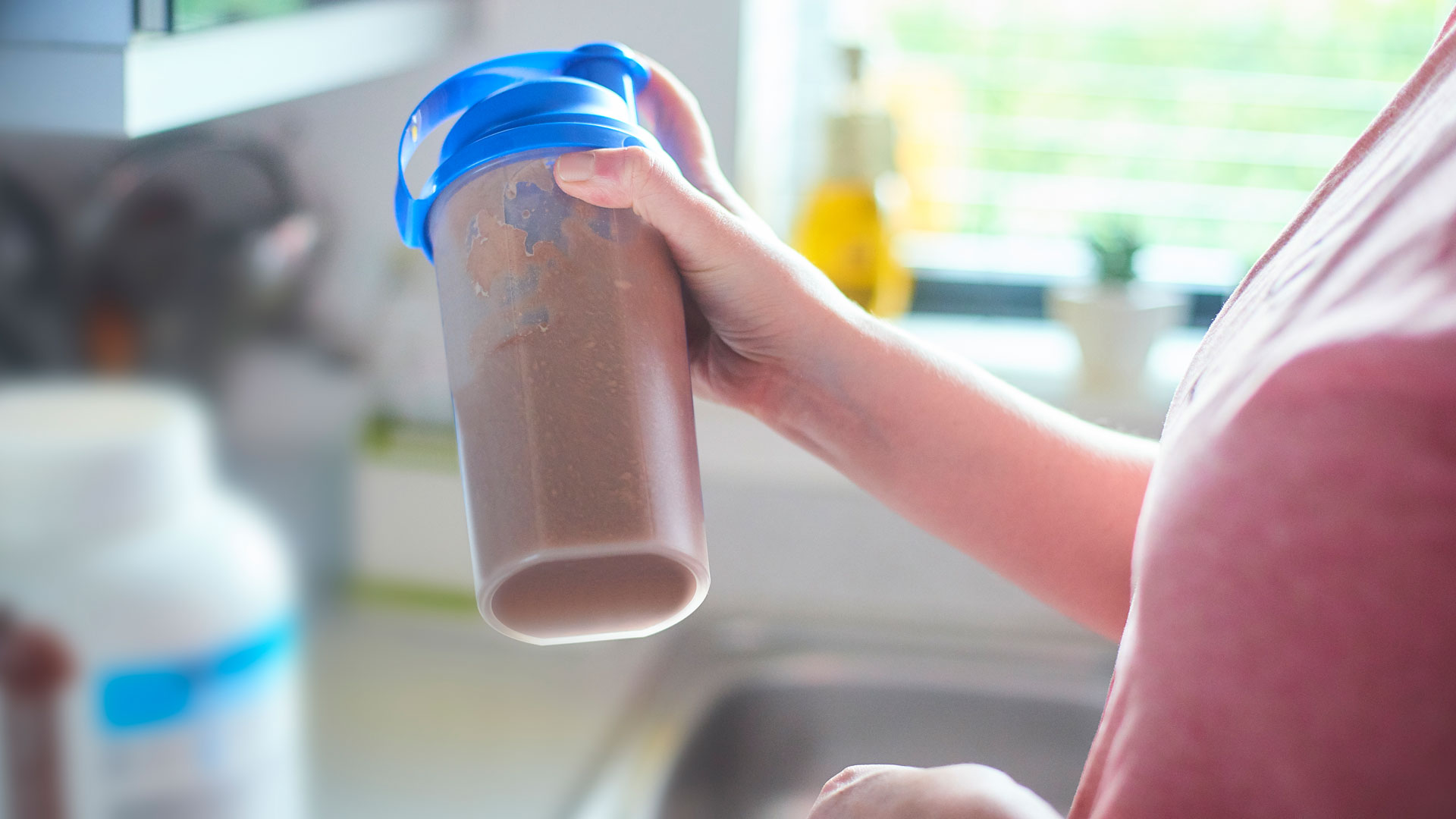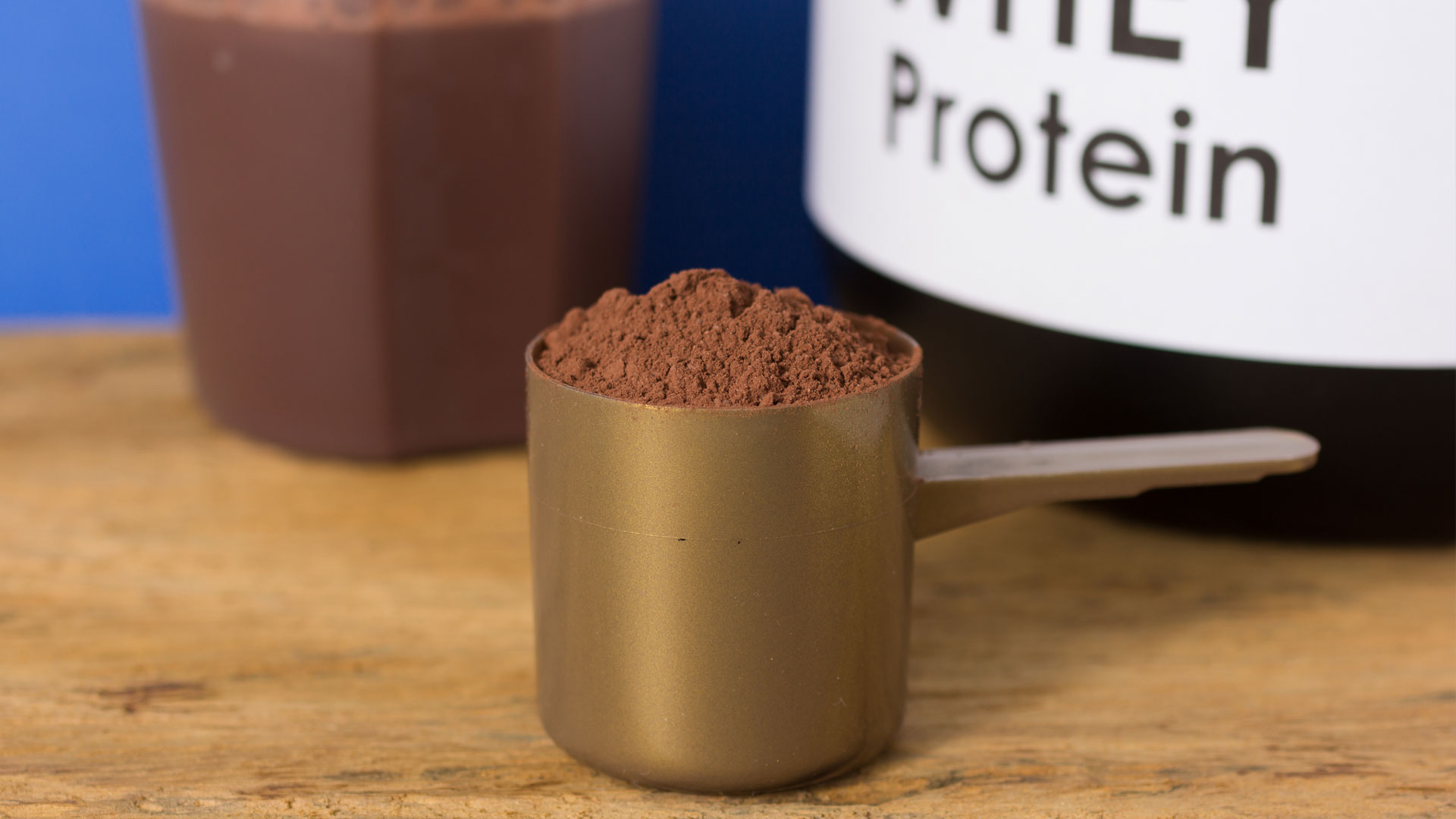Is protein powder good for you?
Is protein powder good for you? We asked a nutritionist to find out


Becks Shepherd
Wondering; is protein powder good for you? Back in the day, the best protein powder for weight loss was only available to bodybuilders, professional athletes, and fitness gurus looking to fuel their bodies after a hefty workout.
But in today’s climate, where you can get practically order everything on demand, the best protein powder for women and men are more readily available. However, does that mean you should be ingesting protein powder?
According to nutritionist and personal trainer, Lamorna Hollingsworth: “Protein powder is ideal for people who are looking for help with weight management, looking to gain muscle or weight, for athletic recovery/performance, and in some cases, as a meal replacement.”
So, if you’re looking to bulk up, hit your daily protein intake, or lose some weight, there’s a protein powder for you and your goals.
To discover what protein powder is the most suitable for you and the science behind what protein powder does and whether or not you can take too much – keep reading. We’ve done all the research, put all the questions to the experts, and uncovered everything you need to know.
Is protein powder good for you? What you need to know
Lamorna Hollingsworth said, “Protein is involved in nearly every bodily process and is needed to build, repair and maintain muscles. Protein is satiating, meaning it helps us to stay fuller for longer - which is why you don’t get hungry so quickly after you eat something containing protein. If you don’t get enough protein, you could experience a loss of muscle mass and an increased risk of infections, among other things.”
“We need to eat protein throughout the day because unlike carbs which are stored in the body as glycogen and fat which are stored in the body as triglycerides, the body can’t store protein for quick use. Protein powder is a convenient and cost-effective way to consume protein and can be helpful for individuals who aren’t getting enough protein from whole foods.”
Get the Fit&Well Newsletter
Start your week with achievable workout ideas, health tips and wellbeing advice in your inbox.
A protein powder can help you meet your daily protein target in combination with whole foods. These products can also help you cut back on meat and dairy protein sources if you are trying a plant-based diet.
Protein powder may be good for you if you are trying to lose weight. A review of research studies found reductions in body weight and fat mass in adults taking whey protein supplements. Some studies recommend having 30g of protein at meals to help with appetite control, fullness, and weight management.

Protein is essential for muscle growth which is why so many athletes and gym goers consume protein shakes after strength training. A 2018 analysis supports the use of protein supplementation for muscle growth. The research suggests that protein supplements significantly improve muscle size and strength in healthy adults who perform resistance exercise training, like lifting weights.
The health benefits may go beyond weight loss and training. For example, research published in the International Dairy Journal found that beverages supplemented with whey protein significantly reduced blood pressure in patients with hypertension, lowering their risk of developing heart disease or stroke.
Protein shakes are not just for gym bunnies. Older adults may benefit from protein supplements. As we age, we may experience reduced physical activity, decreased appetite, and muscle loss. Muscle loss can increase injury risk. A review of 35 research studies suggests whey protein prevents fall risks and muscle loss in the elderly.
What does protein powder do?
Protein powder is a simple and convenient way to increase your protein intake, which is needed to support muscle growth and a host of other bodily functions.
During exercise, the stress placed on the body results in protein breakdown. Replacing that protein after training allows muscles to rebuild and recover. Research has shown that protein supplements can optimize your physical performance, speed up your recovery time, and may potentially contribute to building muscle mass.
If you’re struggling to get enough protein in your diet or need more protein to support your strenuous workouts, then shakes may help. It all depends on your preferences. For instance, some people feel hunger after intense exercise that only solid food can satisfy. But maybe you can’t stomach eating after a challenging workout. That’s where a protein shake can come in handy.

Can you take too much protein powder?
When it comes to protein powder, you should avoid consuming multiple shakes a day instead of food because it can cause health issues. Protein powders may contain artificial sweeteners, sugars, and other additives that may lead to bloating, nausea, and indigestion. Protein powders are designed to be used as a supplement to a healthy diet and should not replace protein in whole foods.
Nutritionist and thyroid health specialist Alice Godfrey said, “Wholefood protein is important for the nutrients. Your body is designed to recognize whole foods in their natural form so it’s best to eat your protein. It's unclear whether having too much protein is dangerous for the body, but I would certainly be cautious when it comes to food supplements and eat most of your protein in food form.”
The biggest issue with overusing protein powder is that you are likely creating nutrient gaps in your diet. For example, if you are relying too heavily on protein as your primary source of nourishment without incorporating other important nutrients. For a healthy, balanced diet, you need to combine different foods such as legumes, grains, foods that are high in fiber, as well as fruits and vegetables to help your body function at optimal levels.
The Recommended Dietary Allowance for protein for a healthy adult with a minimal physical activity level is currently 0.8 grams of protein per kilogram (or 2.2 pounds) of body weight per day. So, a person weighing 75kg (165 pounds) should consume an average of 60g of protein per day. But protein needs may increase based on your activity level and age. For example, 1.4 to 2 grams per kilogram of body weight may be needed for building muscle mass due to strength training, and 1 to 1.2 grams per 2.2 pounds of body weight is recommended for those over the age of 65.
Studies have shown no safety concerns at daily recommended intakes of up to 2 grams of protein per kilogram of body weight a day.
Catherine is a freelance journalist writing across titles such as Verywell Health, Healthline, The Daily Telegraph, Refinery29, Elle, and Vogue. She specializes in content covering health, fitness, wellness, and culture. A once reluctant runner, Catherine has competed in 30 running events in the past five years and looks forward to one day running the London Marathon.
-
 This might be your last chance to get my favourite waterproof walking shoe, and it's 25% off
This might be your last chance to get my favourite waterproof walking shoe, and it's 25% offDeal These Adidas Gore-Tex shoes are the most watertight I've tested
By Lou Mudge
-
 I tried wall balls for 30 days and the results surprised me
I tried wall balls for 30 days and the results surprised meTry this fitness challenge to boost total body strength
By Maddy Biddulph